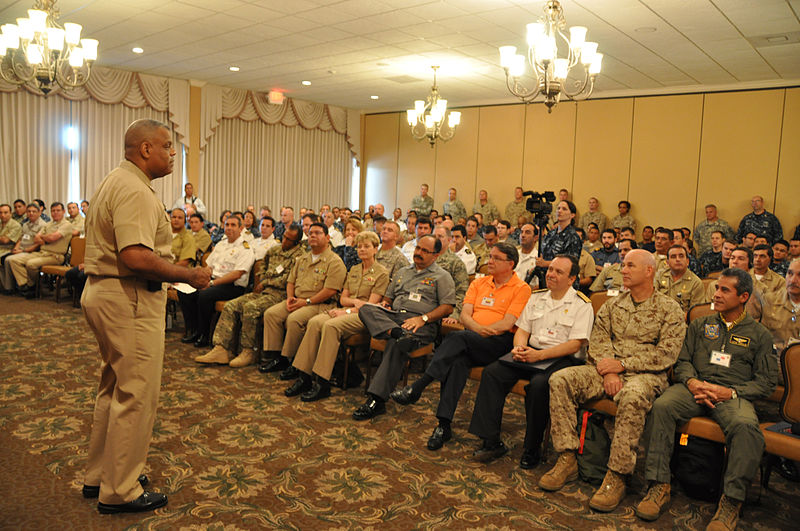
U.S. Military, non-government agency planners and prospective participants in the upcoming Continuing Promise 2015 humanitarian assistance deployment worked on the details of the operation during a mission planning conference hosted on Dec. 2-5 by U.S. Naval Forces Southern Command/4th Fleet.
Continuing Promise, a U.S. Southern Command training mission introduced in 2007, focuses on providing medical, engineering and veterinary humanitarian assistance activities in select countries to strengthen partnerships and improve cooperation on many levels among partner nations, interagency organizations and nongovernmental organizations.
This year’s Continuing Promise mission will include hospital ship USNS Comfort (T-AH 20), a military sealift command ship, for the fourth year.
From early April through September, Continuing Promise will provide medical and dental care, preventive medicine and veterinary consulting, and construction projects in 11 countries. The mission will return to Belize, Colombia, Dominican Republic, El Salvador, Guatemala, Haiti, Jamaica, Nicaragua, Panama, and, for the first time, visit Dominica and Honduras.
As in previous years, hundreds of surgeries will be performed aboard Comfort, and thousands of patients will be treated ashore.
The mission has an enhanced focus. Building on relationships created in previous years, participants will consider each visit a subject-matter expert exchange, working together to increase the capacities of countries and communities to provide for themselves.
Continuing Promise participants will work alongside local government officials and medical professionals from the host nation to meet the day-to-day needs of communities and to prepare to respond together in disaster relief.
The multinational members of the planning staff worked with information gathered through pre-deployment site surveys in which U.S. and partner nation planners relied on local professionals to describe the needs of their communities to develop the specific plans for each mission stop. Participants will share best practices with the host nation partners, and will work with local doctors, nurses and dentists when providing care and with host nation engineers and specialists during subject-matter expert exchanges and activities.




